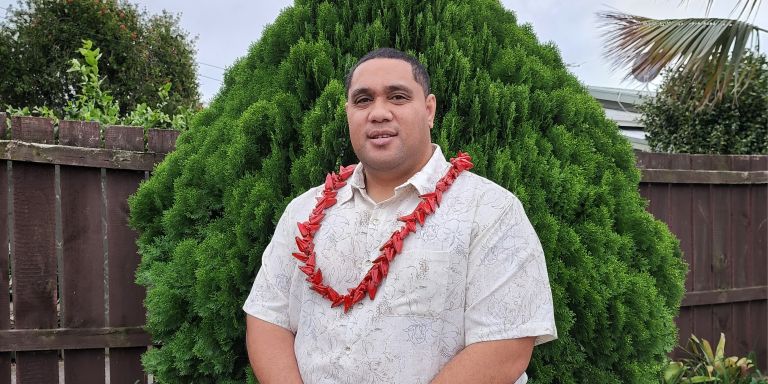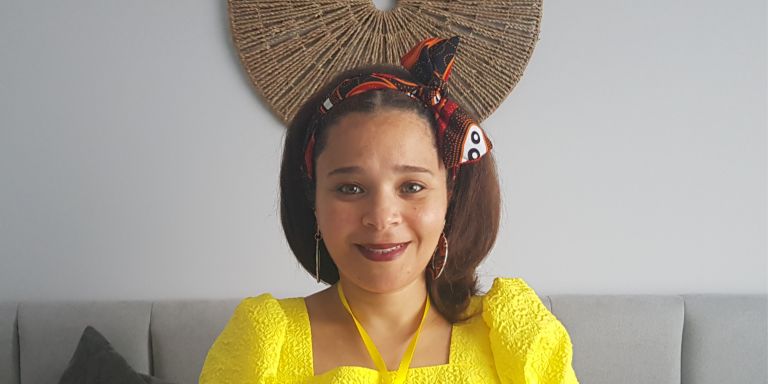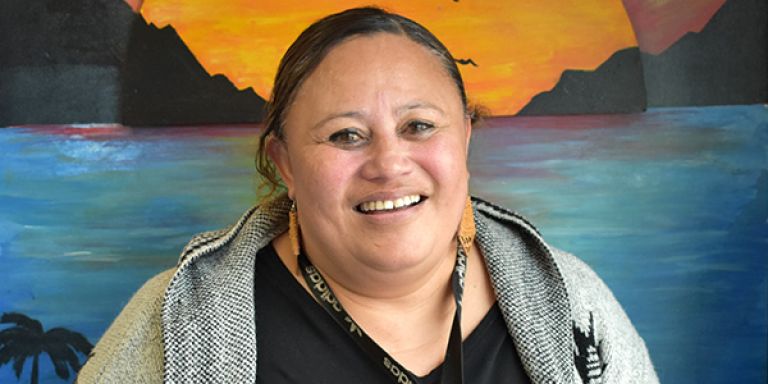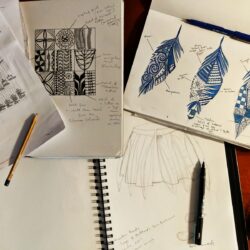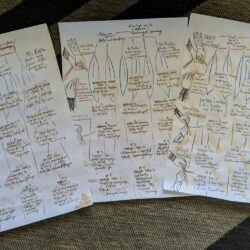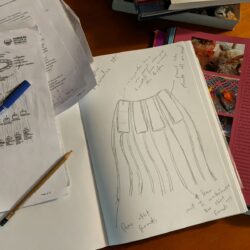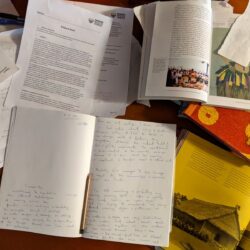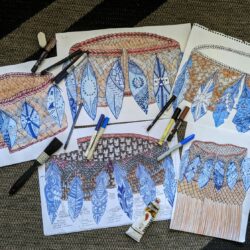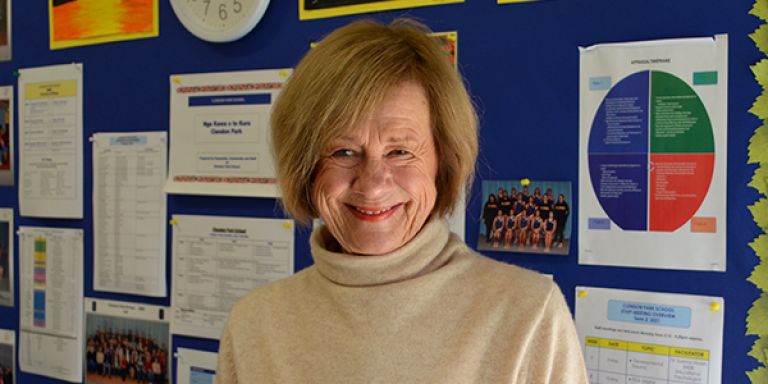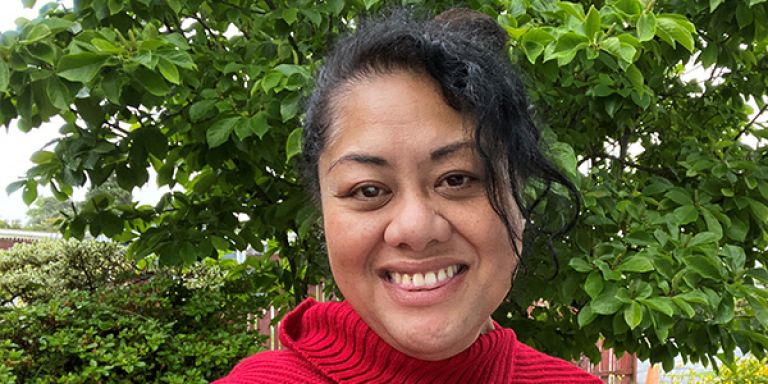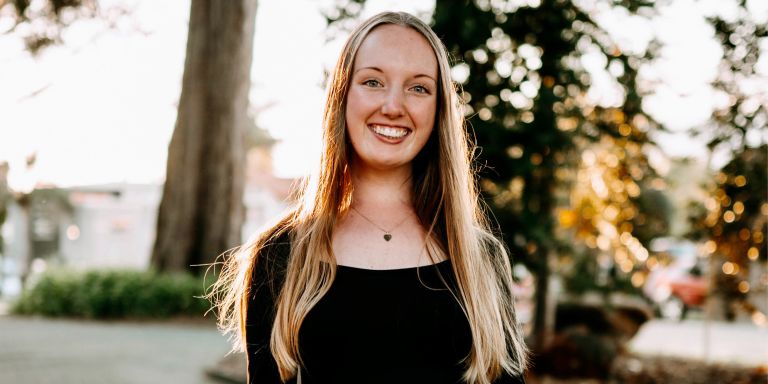The Teaching Council of Aotearoa New Zealand have introduced steps to strengthen mathematics and numeracy requirements for initial teacher education providers from 2025, specifying; “student teachers enrolling in English medium primary ITE programmes commencing from 2025 onwards will need to demonstrate competence in mathematics by getting a score designated as equivalent to NCEA Level 2 in a mathematics assessment specified by the Teaching Council”.
For student teachers enrolling in 2026 they will need to pass the prescribed assessment prior to the second year of study. For student teachers enrolling in 2027 onward, they will need to pass the prescribed assessment prior to entry to the programme.
Programme highlights
Are you passionate about working with children?
Study with MIT to learn the hands-on skills you need to work as a primary or intermediate school teacher (years 0-8).
You will also develop skills in implementing Māori and Pacific teaching methods.
This programme is suitable for anyone looking to teach in a diverse and multicultural country such as New Zealand. You will graduate with the cultural competency to apply theory and hands-on skills to primary/intermediate education using diverse Pacific world-views.
Along with 21 weeks of block practicum experiences, you will spend two days a week working in a real classroom setting from your second semester of study.
Successful completion of this programme will lead to recognised qualified teacher status, and graduates are able to apply for provisional practicing certification with the Teaching Council of Aotearoa New Zealand.
TeachNZ scholarship opportunity
TeachNZ scholarships will support you on your journey towards being a great teacher or kaiako.
They can cover the cost of your course fees and pay you an allowance throughout the duration of your study.
If you are planning on enrolling, or are already enrolled on our Bachelor of Education (Primary, Pasifika) (Level 7), you are eligible to apply for one of TeachNZ’s five scholarships.
Find out more
Entry requirements
You must be 18 years of age or older at the start of the programme
AND
Satisfy the English language competency required as listed below
AND
Meet the requirements as per the Children’s Act 2014 prior to gaining entry into the programme
AND
Complete an interview with a selection panel of at least two registered teachers
AND
Satisfy the minimum diagnostic literacy and numeracy entry assessments marks.
For individuals under 20 years of age, in addition to the above criteria:
Hold UE or a recognised equivalent such as International Baccalaureate or Cambridge International,
OR
Are able to demonstrate to the satisfaction of the provider that they have the skills and ability to study at tertiary level.
Additional programme-specific under 20 years of age exemptions:
You may be exempt from some requirements if you can show that:
- You have successfully completed a course of study no less than one semester in duration at level 4 or above
- You have worked in the field of education (i.e. early childhood, teacher aide) for no less than 1 year and can provide at least two referee statements from employers/mentors who have overseen this work. Referee reports should indicate your likelihood of being successful in degree study.
Whether or not you are eligible for the exemptions for under 20-year-olds or how they’ll be applied in your case will be decided by the programme committee.
20 years of age
If you are 20 years of age at the commencement of the programme and have relevant life and/or work experience but do not have the minimum academic requirements, you may apply for admission if you meet comparable literacy and numeracy requirements as those entering with UE.
20+ years of age
If you are 20 years of age and over and without UE, you will need to be able to demonstrate that you have the ability to study at a tertiary level.
Application form requirements
If you want to undertake the programme you must submit the completed application form to the School of Education.
The application form includes a declaration of physical and mental health, a declaration of all criminal and pending criminal convictions and consent for a police check. You may be required to provide a health declaration that you are emotionally, mentally and physically capable of undertaking the demands of the teaching programme as required in the Teaching Council of Aotearoa New Zealand Code of Professional Responsibility and Standards for the Teaching Profession. Reports may be requested with your consent.
Your application form must be submitted with the following:
- Evidence of educational qualifications
- Evidence of language proficiency (as per Teaching Council of Aotearoa New Zealand policy) as required
As well as;
- Children Act (2014) safety check requirements:
- Two forms of identification – one must be a photo ID. If the name used on the application form differs from the name(s) on the ID you must produce a supporting document that shows evidence of name change.
- Two satisfactory written referee reports, from independent referees, who will provide confidential information about you. Referees will be asked to affirm that you are of good character, likely to be ‘fit to be a teacher’, and can communicate well with adults and children. Referees must not be related to you and have known you for at least two years. Referees must send the completed form directly to the enrolment team on behalf of the School of Education.
- A completed New Zealand Police Vetting Service Request and Consent Form and satisfactory result.
- Attend an interview with two School of Education staff.
Language competency requirements
Prior to entry, you must demonstrate language competency by providing one of the Teaching Council’s approved evidence of language competency, as follows:
- New Zealand University Entrance literacy credits at either NCEA level 2 or 3;
- New Zealand University Entrance;
- New Zealand tertiary entrance qualification gained on completing senior secondary school prior to the introduction of the current University Entrance;
- International Baccalaureate full diploma in English medium (24 points minimum).
- Cambridge International Examinations minimum of 120 points on the UCAS Tariff plus meeting the CIE literacy requirements;
- All primary schooling and at least three years of secondary schooling completed in the English language and while living in New Zealand, Australia, Canada, the Republic of Ireland, the United Kingdom, the United States of America or South Africa [applicants from South Africa must also provide South African Matriculation Certificate Minimum D pass in English (higher grade) OR South African Senior Certificate Minimum D pass in English (higher grade)];
- For more detail on language competency requirements check: https://teachingcouncil.nz/content/language-competency-requirements-0
Other requirements and application details
You must be able to attend teaching practicum at specified times and places.
You will be notified in writing of the outcome of your application.
If your application is successful you will be reminded that while you have been accepted into the programme based on the best judgment of the selection panel, it is the Teaching Council of Aotearoa New Zealand that will assess suitability for teacher certification upon successful completion of the programme.
You are required to inform the School of Education Programme Committee of all criminal and pending criminal convictions you receive at any point after acceptance onto the programme.
If your application is unsuccessful you will be informed of the reason and will be provided with information on alternative learning pathways and possible options to enhance future application.
International Students
English Language Entry Requirements
For the minimum English language requirements refer to the requirements set out in Rule 18 of the NZQF Programme and Accreditation Rules.
Give yourself credit with Recognition of Prior Learning (RPL)
Did you know you can use the knowledge and experience you already have to your advantage?
Your previous work experience and on-the-job skills, volunteering, professional development, and other providers’ qualifications can be recognised as prior learning, matched against credits in our courses, and put towards your qualification – potentially saving you money and possibly helping you to complete your qualification faster Learn more.
Programme structure
You will need to complete the below 20 courses (360 credits):
Level 5
The child in the community (15 credits)
You will explore theoretical perspectives of literacy acquisition and approaches to learning that support the interrelationship between making meaning and creating meaning. You will also develop research-informed knowledge and practice about understanding, using and creating oral, written and visual texts focussing on individual learners’ literacy learning.
Who will I be when I am a teacher? (15 credits)
Explore your own personal learning foundations and frameworks in order to understand and develop a holistic identity as a healthy classroom teacher who takes responsibility for their own learning pathways and manages their own wellbeing (Hauora).
The Health and Physical Education curriculum, teaching perspectives and strategies will be introduced through inquiry learning, enabling student teachers to develop and reflect on the relationship between wellbeing and learners’ social, emotional and academic learning. Student teachers will practise interpersonal skills required to contribute to effective knowledge-building communities.
How can we explain learning? (15 credits)
Explore how learners develop and learn, drawing on theories of human and child development, and learning theory. You will focus on relating this learning to how children develop conceptual understandings in Science, including cultural perspectives, and particularly the development of language, reasoning abilities, investigative processes, skills, and attitudes. You will also develop your own confidence and knowledge in Science and learn the knowledge and practice of pedagogies appropriate to this curriculum area.
Introduction to Pacific principles in teaching practice (15 credits)
You will consider a range of approaches and methods integral to Pacific ways and how these may inform teaching and classroom practices. A thorough review of the programme’s conceptual framework will set you up with a background steeped in Pacific epistemologies.
Engaging with learners and learning (15 credits)
You will learn about current assessment practices and how, when and why small group learning can be effective. You will also challenge your own understandings of effective practice by examining what teachers do and why, to meet learners’ needs, particularly in Mathematics and Statistics. Improve your knowledge of Mathematics and Statistics and develop research-informed knowledge and practice about current Mathematics and Statistics pedagogies, relevant to the socio-cultural context of Aotearoa New Zealand.
The New Zealand curriculum: A vision for children’s learning in Aotearoa (15 credits)
Explore how the New Zealand Curriculum provides a framework and direction for student teachers to work with primary school learners to become productive contributing members of society in an increasingly technologically driven world. You will develop research-informed knowledge and practice about technology through the exploration of the Technology Curriculum and technological investigation.
Culturally responsive teaching (15 credits)
Learn the theoretical and practical framework for culturally responsive teaching that takes account of the cultural and linguistic backgrounds of learners within the context of teaching from the Learning Languages curriculum, including Te Reo me ona Tikanga Māori, and the special place of Pasifika in Aotearoa New Zealand. You will develop an awareness of Māori culture and an appreciation of the dual heritage of Aotearoa New Zealand through engaging with Te Tiriti o Waitangi.
Professional practice and inquiry 1 (15 credits)
Delivered while on block placement in an Aotearoa New Zealand primary school setting, this course complements the practice-based experiences of all other Level 5 courses by focusing on your understanding of the learning processes, the learning environment and the fundamental relationships between learning and teaching. Being your first practicum course, it additionally provides the background and context for all future practicum courses.
Level 6
Organising for learning (20 credits)
Explore key concepts including citizenship, culture, identity, perspectives, social cohesion, society and values, and utilise the Social Sciences curriculum to develop and implement effective learning programmes. You will explore classroom citizenship and participation, enabling you to organise and manage positive classrooms in ways that engage all learners and maximise their full learning potential.
Communities of learners (20 credits)
Explore how teachers and learners function and engage in learning communities, including the classroom, the school and the wider social and cultural community. You will further develop understandings of the social, historical, philosophical and cultural contexts of learning, critique their own beliefs and broaden their relationships with a wide range of stakeholders.
Through an emphasis on investigation and problem-solving in Mathematics and Statistics, the focus will be on how communities work to promote learning and use relevant pedagogically and culturally appropriate approaches across all areas of the school.
Professional practice and inquiry 2 (20 credits)
Delivered while on block placement in an Aotearoa New Zealand primary school setting, this course complements the practice-based experiences of all other Level 6 courses by focusing on your understanding of curriculum and its organisation and implementation and meeting the needs of learners individually and in communities.
Meeting learner needs (20 credits)
Develop your understanding of diversity and inclusion and how the needs of diverse learners can be met. Building on 9xx.5xx The Child as an Individual more deeply exploring the theoretical perspectives of literacy acquisition and approaches to learning that support the relationship between making meaning and creating meaning. You will develop research-informed knowledge and practice about understanding, using and creating oral, written and visual texts with a focus on progressing toward meeting learners’ diverse needs and raising achievement.
Curriculum in action (20 credits)
You will focus on how teachers use the integration of the curriculum to meet the learning needs within the unique bicultural and multicultural character of Aotearoa New Zealand. You will also explore the theoretical perspectives and implementation of The Arts curriculum through integrated learning approaches that challenge, affirm and celebrate unique artistic expressions of self, community and culture. Develop research-informed knowledge and practice about whole class integrated learning. You will also be introduced to the legislation relevant to the teaching profession.
Professional practice and inquiry 3 (20 credits)
Delivered while on block placement in an Aotearoa New Zealand primary school setting, this course complements the practice-based experiences of all other Level 6 courses by focusing on your understanding of curriculum and its organisation and implementation, meeting the needs of learners individually and in communities; with increasing complexity and effectiveness over a greater sustained period.
Level 7
Pedagogy and curriculum (20 credits)
You will be challenged to develop and exhibit the dispositions of ‘professionals’ by taking responsibility for your own professional development, drawing on and contributing to the educational community. You will revisit and extend knowledge and critique of contemporary pedagogy appropriate to specific curriculum content and justify your emerging personal-professional philosophy of learning and teaching.
Contemporary issues (20 credits)
The role of teachers in society extends to being able to contribute to the critical debate around broader curriculum and social issues. You will explore contemporary issues in relation to the New Zealand Curriculum and children’s learning in Aotearoa New Zealand. You will also engage in educational debate in global contexts and contribute to the development of the curriculum by developing strategies and resources to begin to address an identified issue.
Teacher as inquirer (20 credits)
You will illustrate the ways in which you have developed your teacher identity and dispositions, have acted ethically and have raised learner achievement.
Professional practice and inquiry 4 (20 credits)
Delivered while on block placement in an Aotearoa New Zealand primary school setting, this course complements the practice-based experiences of all other Level 7 courses by focusing on your understanding of curriculum and pedagogy, integrated and inquiry approaches to learning, reflective practice approaches to change and improvement; with further increased complexity, effectiveness and sustained period.
Teacher as a researcher: Raising learner achievement (20 credits)
Using action research methodology, you will design and implement an action research project, drawing together the research skills required of a critically reflective practitioner. Particular emphasis will be on working within the knowledge building community, raising learner achievement and improving learner outcomes.
Professional practice and inquiry 5 (20 credits)
Delivered while on block placement in an Aotearoa New Zealand primary school setting, this course complements the practice-based experiences of all other Level 7 courses by focussing on your understanding of: the school and class as multi-layered and extremely complex organisations for learning and teaching in a context of law, community, culture, need and achievement; with sustained achievement in effective classroom teaching practice commensurate with Graduating Teacher Standards.
Do you want to study a single course, without enrolling into the full programme?
Courses within some of our programmes may be offered as an individual Certificate of Proficiency (COP). Programme entry requirements and course fees apply. For more information, please speak to our friendly Ask Me! team.
Further training or study
Career opportunities
Graduates of this programme are likely to be employed as teachers working in Schools teaching Primary and/or Intermediate.
Further or prior work experience or study may gain employment in the following fields: Principal, SENCO, team leader, Careers adviser, Child Psychotherapist, Counsellor, Family support worker, Health play specialist, Museum education officer, Play therapist, Private tutor, Youth worker etc. For potential salaries visit careers.govt.nz.



